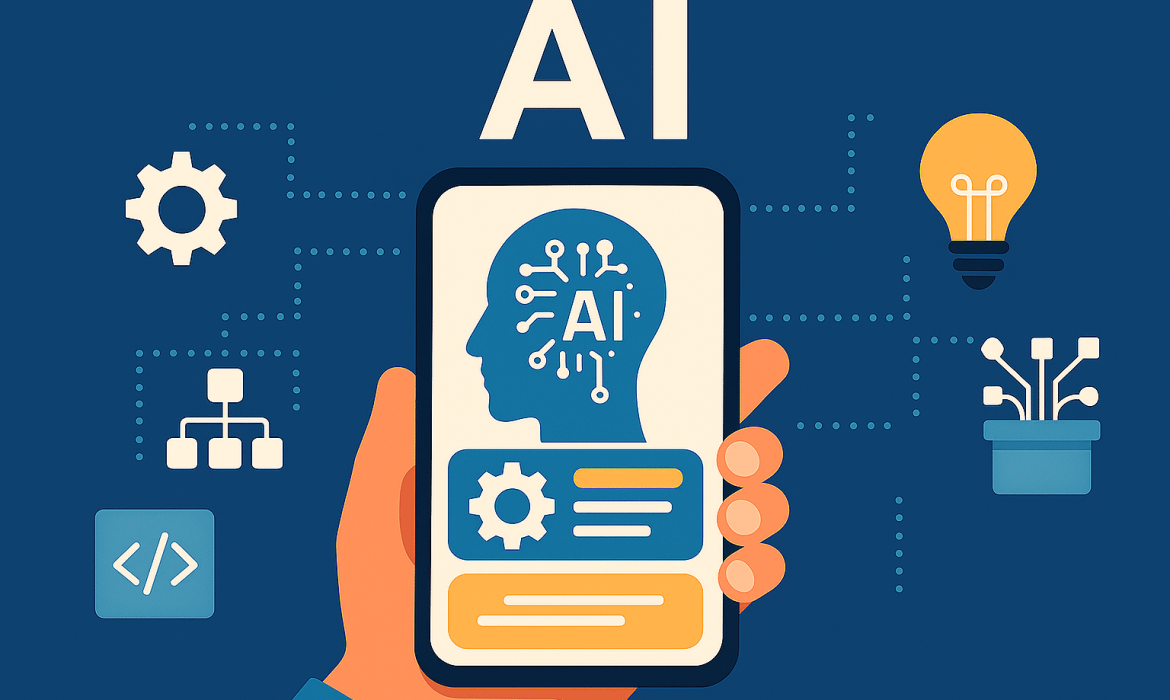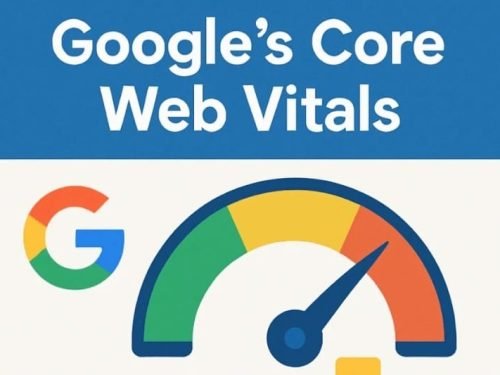AI is changing the process of creating mobile apps with smart capabilities, such as personalization, voice, and image recognition. It is also assisting in predictive analytics, coding automation, and testing. This reduces development time and improves app performance. AI is creating better user experiences that adjust in real time.
In this blog, you will going to explore the different ways AI is changing mobile app development.
Here is an overview:
- AI acceleration in app development
- AI post-launch learning and adaptation of apps
- Now, user experiences are smarter and more personalized
- Companies with fast-growing AI applications
- The next-generation apps will be fully AI-based and proactive
How AI Is Transforming the Way Apps Are Built
In the past, building an app was a slow process. Developers had to:
- Write every piece of code manually.
- Test features step by step.
- Spend weeks debugging before release.
This made app development both expensive and time-consuming.
AI has completely changed this approach. Tools like Gemini in Android Studio and Amazon Q Developer act like smart assistants for developers. They can:
- Generate code snippets instantly.
- Suggest best practices while coding.
- Handle repetitive tasks like writing boilerplate code or creating unit tests.
Testing has also become faster. AI tools detect bugs automatically and recommend fixes early. This means apps are more stable and ready for release much sooner. What once took months can now be done in weeks.
Design Made Smarter and Faster with AI
Design has been a significant bottleneck with regard to app development. And the challenging part is that the process of developing wireframes, mockups, and prototypes tends to drag the whole project.
AI now helps eliminate these delays. Modern tools can generate designs directly from text prompts. For example:
- Write a description like “create a shopping app homepage with a search bar and product grid”.
- The AI tool instantly produces a working mockup.
The platforms, such as Figma AI, can go further and propose layout enhancements, color choices, and flow design. This decreases back and forth between development and design teams.
Apps That Grow Smarter with Every Use
Earlier, apps stayed static once launched. If developers wanted to improve them, they had to release a full update.
With AI, apps don’t stop evolving after launch. They continue to learn from real user behavior and adapt automatically. For example:
- E-commerce apps recommend products according to the purchase and browsing history.
- Fitness applications suggest your own workout plans by monitoring improvement.
- Music and video applications are based on listening and viewing habits.
This continuous learning makes apps more useful over time. Users enjoy personalized experiences without waiting for new versions. Businesses gain stronger engagement and loyalty because the app feels smarter with every use.
How AI Creates More Personal and Engaging Apps
AI is also transforming how users interact with apps. Features that once seemed advanced are now common because of AI.
- Voice assistants and chatbots ensure that customer support is available whenever needed and 24/7.
- Voice recognition will allow hands-free control, which is popular in applications such as Google Assistant or Alexa.
- Image recognition assists applications in detecting objects, faces, and even ailments in photos.
- AR and computer vision are used to provide immersive experiences, like a virtual try-on in a fashion application or an overlay of a map with real-time navigation.
These intelligent features raise user expectations. Apps that include them stand out and deliver a more engaging experience.
How AI-Powered Mobile Apps Drive Business Growth
- Speed to market is one of the largest benefits. The smarter development tools will reduce the duration required to introduce a new product or service. This enables startup companies to experiment and proven companies to remain competitive in rapidly changing industries.
- Personalized customer engagement is another growth driver. Applications that respond to the personal behavior of users make people more engaged. Such characteristics as personalized suggestions, chat service, or personalized notifications promote returning to the app and increased loyalty.
- Revenue generation is also clearly affected. It will result in more successful advertising and produce a greater number of converting in-app purchases. Companies can align the appropriate products with the appropriate consumers at the appropriate moment, and they convert window shopping into purchases.
Lastly, this trend is supported by market research. According to industry reports, the intelligent mobile applications market is growing at an impressive rate all over the world, with the growth figures expected to rise into the double-digit range within the next ten years. Those companies that implement these solutions early are putting themselves in a long-term advantageous situation.
Key Challenges in AI-Powered App Development
The bigger and more better future is ahead for AI apps. However, some challenges also need to be addressed, such as:
- Data privacy and security: AI apps require personal information to provide results. That is why there is a need to safeguard personal data. Some rules, like GDPR, provide strict requirements on how data is to be processed, and companies should adhere to them.
- Ethical issues and bias: AI systems are capable of generating biased outputs or hallucinations. The developers have to create protective measures, test models, and provide fairness in appearance features to the users.
- Complexity of integration: The addition of AI is not a plug-and-play solution. It needs infrastructure, APIs, and training.
- App store compliance: There are now Apple and Google guidelines on AI features. Applications that abuse AI and use data inappropriately can be rejected.
These challenges don’t slow the revolution but highlight the need for responsible AI practices.
The Future of AI on Mobile Apps
AI in mobile apps is a developing story. The following stage is even more promising in terms of the changes:
- Multimodal experiences: Applications will integrate text, voice, and images to provide smooth experiences. One example is a travel application that might allow you to take a picture of a landmark, receive voice-activated questions, and get direct directions.
- Proactive helping: Apps will not wait, but predict what people need. A health app may prompt hydration notifications depending on activity, or a finance app may call attention to spending patterns before the user becomes aware.
- Offline intelligence: Apps will be able to process data directly on the device. This makes them quicker, more dependable, and more confidential even when not connected to the internet.
- Co-creation with developers: The next generation of tools will allow developers to create large portions of apps automatically in weeks instead of months.
FAQs
Q1: How is AI revolutionizing mobile app development?
AI automates coding, testing, and design. It also drives the high-end capabilities such as chatbots, personalization, and predictive analytics. This simplifies the process of app development.
Q2: Can AI really reduce the time it takes to build an app?
Yes. The work that used to take weeks is now done in days with the help of AI coding assistants and automated prototyping. AI also makes testing and debugging much faster.
Q3: Do small businesses benefit from AI in app development?
Absolutely. AI allows small teams to build enterprise-level apps. They save on costs, reduce manual work, and still deliver high-quality apps.
Conclusion
AI is tremendously transforming mobile app development. It makes coding, testing, and design smarter. Apps do not remain the same as they are launched- now they continue to learn, develop, and offer their users more personalized experiences. This generates actual value to users and businesses.
At Geek Informatic & Technologies Private Limited, we specialize in building AI-powered mobile apps that are smart, scalable, and future-ready. Let’s turn your app idea into an AI-driven success story. Contact us today to get started!









